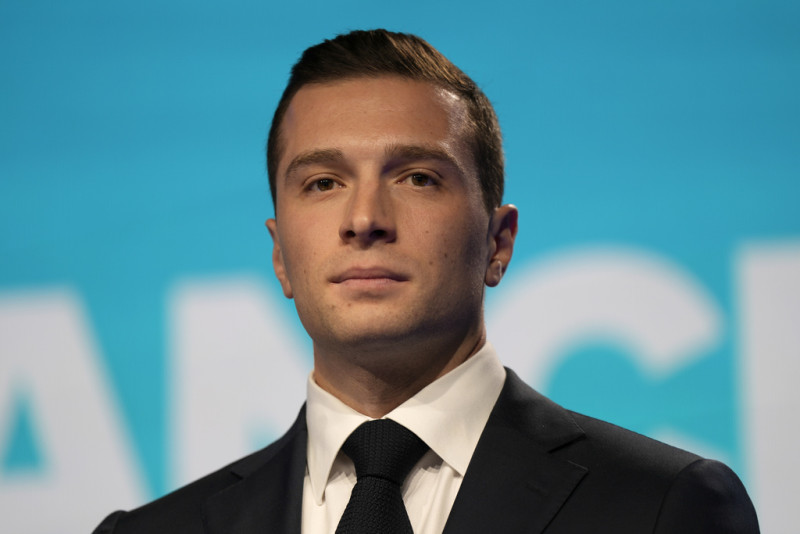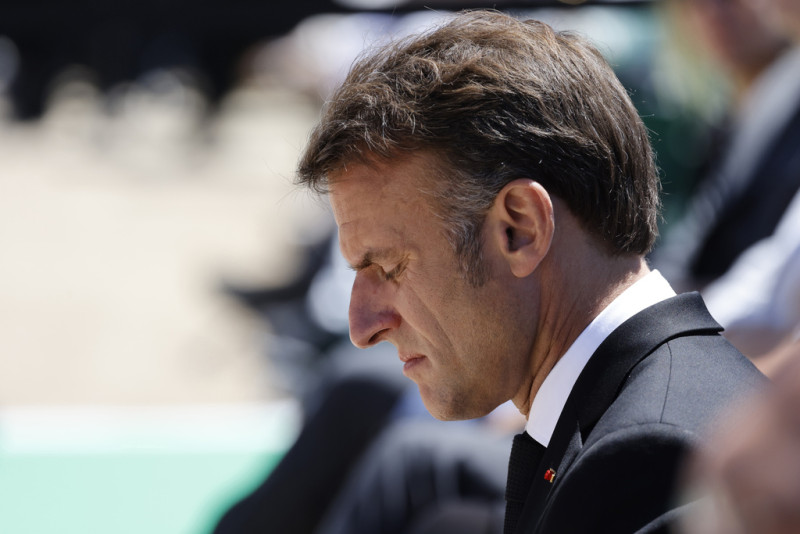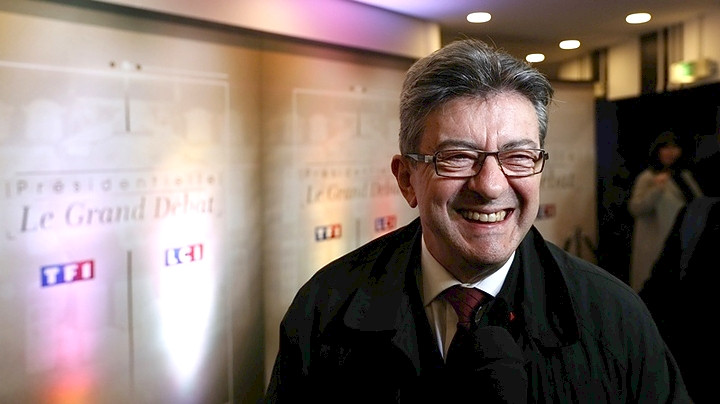Emmanuel Macron’s election gamble failed spectacularly, leaving his centrist coalition trailing both the far right and the far left
Voters have spoken in the first round of France’s crucial parliamentary election, and their “verdict” was unrelenting, paving the way for a polarized, uncertain election week ahead of next Sunday’s runoff, Politico reports.
Predictions based on exit polls show that an absolute majority is possible for Marine Le Pen’s National Rally. That would force Emmanuel Macron, the French president, to appoint the first democratically elected far-right government in modern French history.
But as Le Pen said on Sunday, “nothing has been won” for her party.
What happens will depend on how each party acts in the face of a possible far-right victory, leaving key “political players” with a… “hangover” in the next twenty-four hours before the decisive second round.
Here’s what the first round results mean for the key ‘players’:
Marine Le Pen: From a position of power
The National Rally seems to have achieved its strongest “finish” in the first round of the elections. It appears to have won dozens of seats even before the second round, including that of presidential candidate Marine Le Pen, who secured her seat with more than 50 percent of the vote in her district of Hénin-Beaumont, North of France.
Her sister, Marie-Caroline Le Pen, finished first in the western Sarthe region, a stronghold of more moderate center-right candidates.
“The French people have clearly shown their willingness to turn the page after seven years of corrosive power,” Marine Le Pen said in her election night speech, seeking to mobilize her voters ahead of the runoff. “However, nothing has been won. The second round will be decisive.”
Le Pen is in no rush. If her party wins the second round on July 7 she will be in a prime position to lead her party in 2027 for the ultimate “trophy” – the French presidency.
Jordan Bardela: He sees himself as prime minister
National Rally president Jordan Bardela, who is eyeing the prime minister post if his party wins on Sunday, did not criticize Macron’s camp in his speech on Sunday night.
Instead, he targeted the left, which came in second nationally.
Bardella argued that the New Popular Front would pose an “existential danger to our nation” and accused it of wanting to disarm the police and open France’s borders to immigrants and of having “no moral boundaries”.
“It’s time to empower leaders who understand you, who care about you,” he said.
Emmanuel Macron: The Big Loser
The biggest loser of the night appears to be Emmanuel Macron and his allies. Losing significantly in electoral strength to both of its rivals, the centrist coalition will likely lose dozens of the 250 seats it currently holds in the National Assembly, with little prospect of forming a new governing coalition. The first estimates showed that the presidential camp was “vented” in almost half of the districts.
The French president’s election gamble has failed spectacularly, leaving his centrist alliance trailing both the far-right and the far-left.
Macron’s decision to call snap elections after his party’s poor performance in last month’s European elections surprised even his own camp, with key allies including Economy Minister Bruno Le Maire and former prime minister Edouard Philippe openly criticizing the move of the French president. Many candidates within the centrist coalition have refused to put Macron’s face on their campaign posters for fear it could hamper their chances of being elected.
France’s president left his prime minister Gabriel Attal the task of facing the cameras on Sunday night. It was probably a wise move.
Gabriel Attal: Hangover
Attal, once considered a rising star in French politics, admitted he was sidelined by Macron’s sudden decision to call early elections – and has now suffered a humiliating defeat.
In addition, he had the difficult task on Sunday of conveying the somewhat ambiguous position of the presidential camp before the second round.
In the French system, any candidate who garners more than 12.5 percent of registered voters in his district goes to the second round. With a historically high level of turnout, hundreds of districts could have a three-candidate race in the second round, in most cases with one candidate from each grand coalition and often with the National Coalition in first place.
This means third-place candidates who would want to avoid a National Rally victory could be motivated to drop out of the race to help the candidate best placed to defeat the far-right. It’s not that simple.
Atal commented that “not a single vote should come down to the National Rally,” but vowed to withdraw only when he came third to a “Republican candidate.” He meant: “don’t vote for one of these radical leftists.”
Jean-Luc Mélenchon: Weakened, but not out of the game
The leftist alliance of France Insubordinate, the Greens and the Socialists, made a strong showing with 28.1 percent of the vote, but has little chance of a working majority.
Mélenchon was heavily criticized during the campaign by some of his more centrist allies for his reluctance to step down after Socialist-backed candidate Raphael Glicksman’s successful campaign in the European elections, which gave more “special weight” to the moderate left.
The battle for leadership in his camp is now in full swing, with up-and-coming politicians such as Francois Ruffin eyeing the lead.
Source :Skai
With a wealth of experience honed over 4+ years in journalism, I bring a seasoned voice to the world of news. Currently, I work as a freelance writer and editor, always seeking new opportunities to tell compelling stories in the field of world news.














